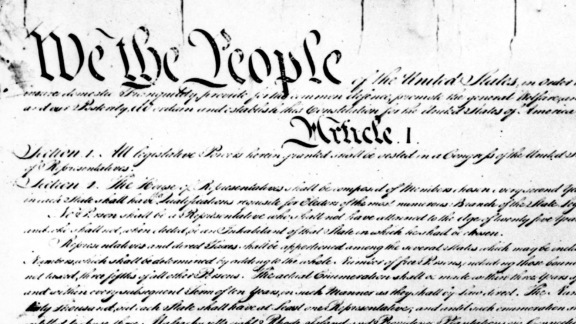From June 2022:

 www.coincenter.org
www.coincenter.org
Looks like the case has had a lot of activity but it's not yet resolved:
... Coin Center filed suit in federal district court against the Treasury Department in a facial constitutional challenge to the amendment of Section 6050I of the Tax Code that was part of the Infrastructure Investment and Jobs Act passed last summer.
...
... there is one provision in the infrastructure bill that is unconstitutional on its face and that simply can’t be fixed through regulation. It is the so-called 6050I amendment, and it will require individuals and businesses who receive $10,000 or more in crypto to report to the government not just the name of who sent them the funds, but that person’s date of birth and Social Security number as well.
Are you an artist who sells a painting or an NFT for $15K? You have to file a form informing the government on your client’s personal information. Are you a nonprofit who receives anonymous donations for your humanitarian work? No longer. You may have to give the government a list of your donors. This is an affront to our civil liberties that must be challenged the only way they can at this point: in court.
Our suit leads with two major claims: (1) forcing ordinary people to collect highly intrusive information about other ordinary people, and report it to the government without a warrant, is unconstitutional under the Fourth Amendment; and (2) demanding that politically active organizations create and report lists of their donors’ names and identifying information to the government is unconstitutional under the First Amendment. The first claim is about privacy and our Fourth Amendment right to be secure from unreasonable searches and seizures. The Fourth Amendment already has some huge carve-outs that leave people with precious little space for privacy. For example, under the “third-party doctrine” once you hand private information over to a bank or social media company, you lose your right to prevent warrantless searches of that information.
The 6050I provision, however, isn’t even aimed at collecting information from “third parties”; it demands that the persons directly participating in a transaction occurring without banks or other intermediaries report about themselves and the people they are paying or who are paying them. As we’ve argued before, if there’s no third party to a transaction then there’s no third-party doctrine to obviate the need for warrants. If the government wants us to report directly about ourselves and the people with whom we transact, it should prove before a judge that it has reasonable suspicion warranting a search of our private papers.
The second claim is about our freedom of association. In the 1950s Alabama demanded that civil liberties organizations like the NAACP report lists of their members. In a critical victory for civil rights, the Supreme Court found that the government cannot force these organizations to keep and report such lists. The Court reasoned that people would be afraid to join these organizations, to contribute to them, and to speak out on the important issues for which they advocate, if their names were immediately reported to a potentially corrupt policing authority. These privacy harms have come to be known as a “chilling effect” on First Amendment rights, and laws that chill speech in this way are generally unconstitutional. The 6050I provision may require civil liberties groups, Coin Center included, to list and report this supporter information and would enable the government to monitor an even wider range of expressive activity. It would substantially chill political association and therefore is unconstitutional.
...

Coin Center has filed a court challenge against the Treasury Dept. over unconstitutional financial surveillance
It is a clear overreach for the government to force citizens to spy on each other without a warrant
Looks like the case has had a lot of activity but it's not yet resolved:
